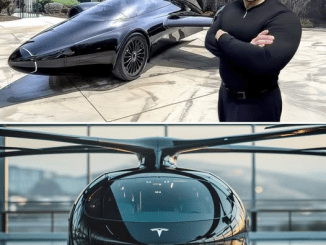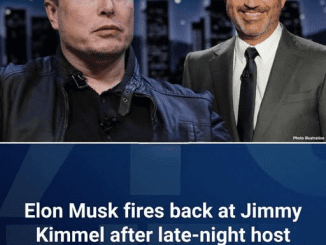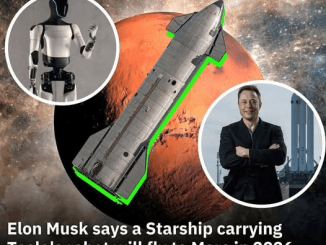
When it comes to shaping the future of humanity, few names stand out as much as Bill Gates and Elon Musk. Both are visionary billionaires, yet their approaches to philanthropy, innovation, and problem-solving couldn’t be more different. Gates believes in strategic philanthropy, tackling global health, education, and poverty through direct funding and structured initiatives. Musk, on the other hand, focuses on technological advancements, viewing innovation as the best way to address the world’s greatest challenges.
This contrast raises an important question: What is the best way to change the world—through traditional philanthropy or by revolutionizing technology?
Bill Gates: Systematic Philanthropy for Global Change
For over two decades, Bill Gates has been a dominant force in global philanthropy, directing billions of dollars toward solving systemic issues. His Bill & Melinda Gates Foundation, founded in 2000, has become one of the most influential charitable organizations in the world.
Key Areas of Focus
🔬 Global Health – Gates has been instrumental in the fight against diseases like malaria, polio, and tuberculosis. His foundation has funded vaccine research, medical treatments, and disease prevention programs in developing countries.
📚 Education & Literacy – Recognizing that education is key to breaking the cycle of poverty, Gates has invested heavily in school reform, digital learning initiatives, and scholarships to improve literacy rates worldwide.
💰 Poverty Reduction – Through partnerships with organizations like the World Bank and the United Nations, Gates has helped fund agriculture, clean water, and microfinance programs to lift millions out of poverty.
The Gates Approach: Data-Driven and Measurable
One of Gates’ key philosophies is “measurable impact.” His foundation doesn’t simply donate money—it tracks progress, studies results, and adjusts strategies based on data. This structured approach ensures that every dollar spent leads to tangible improvements in people’s lives.
Gates believes that systemic problems require systemic solutions—ones that are backed by research, partnerships, and long-term commitments.
Elon Musk: Innovation as Philanthropy
Unlike Gates, Elon Musk’s approach to changing the world is less about donations and more about creating transformative technologies. Musk has often said that his mission is to ensure the long-term survival of humanity, focusing on groundbreaking industries like renewable energy, artificial intelligence, and space exploration.
Key Areas of Focus
🚀 Space Exploration & Mars Colonization – Musk’s SpaceX is developing reusable rockets and interplanetary travel systems to establish a human presence on Mars, ensuring humanity’s survival beyond Earth.
⚡ Renewable Energy & Sustainability – Through Tesla, Musk is revolutionizing electric vehicles, solar energy, and battery storage, aiming to reduce global reliance on fossil fuels.
🧠 Neuralink & AI Research – Musk believes in enhancing human intelligence with brain-computer interfaces to keep up with the rapid growth of artificial intelligence.
🚄 Hyperloop & Transportation Innovation – With projects like the Hyperloop and The Boring Company, Musk is reimagining urban transport, reducing congestion, and improving city infrastructure.
The Musk Philosophy: Innovation Over Charity
Musk’s belief is simple: The best way to help humanity is by creating technology that solves big problems. Instead of traditional charitable giving, he invests in companies and projects that push the boundaries of science and engineering.
He has criticized philanthropy as being inefficient and short-term, arguing that technological progress has a far greater impact than donating money to causes.
Gates vs. Musk: Who is Making the Greater Impact?
While Gates and Musk share a desire to change the world, their strategies raise an important debate:
- Gates is fixing today’s problems, using philanthropy to fight diseases, improve education, and reduce poverty.
- Musk is preparing for tomorrow’s challenges, ensuring that humanity can survive and thrive through technological breakthroughs.
Strengths and Criticisms
| Approach | Strengths | Criticism |
|---|---|---|
| Bill Gates (Philanthropy) | Directly improves lives today, targets systemic issues, measurable impact | Relies on existing economic and social systems, may not address the root causes of problems |
| Elon Musk (Innovation) | Long-term vision, disruptive technology, reshapes industries | High risk, prioritizes future progress over present humanitarian needs, expensive projects with uncertain outcomes |
Can These Approaches Work Together?
While Gates and Musk may differ in approach, their goals are ultimately aligned—to make the world a better place. Some experts believe that combining their strategies could create the most effective model for global progress.
Imagine a world where:
- Musk’s innovations in clean energy and AI are funded and implemented through Gates’ structured philanthropic networks.
- Gates’ disease prevention programs integrate Musk’s AI and robotics technologies to improve healthcare delivery.
- Musk’s space colonization efforts incorporate Gates’ sustainability models to create self-sufficient Martian colonies.
By bridging philanthropy and innovation, the potential for solving global issues and preparing for the future becomes even greater.
Conclusion: Two Billionaires, One Goal
Bill Gates and Elon Musk represent two powerful, yet contrasting, visions of global impact. While Gates tackles today’s crises with philanthropy, Musk builds for the future through innovation. Both approaches have merits and limitations, but together, they offer a comprehensive roadmap for human progress.
In the end, it’s not a matter of who is right—but how we can learn from both approaches to create a better world.
🚀 Which approach do you think is more effective—philanthropy or innovation? Let us know your thoughts!


